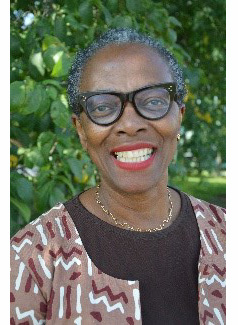 Professor Hannah Akuffo, who recently retired from her position as Senior Research Advisor at the Swedish International Development Cooperation Agency (Sida), reflects on the value of supporting research through the Social Innovation in Health Initiative (SIHI).
Professor Hannah Akuffo, who recently retired from her position as Senior Research Advisor at the Swedish International Development Cooperation Agency (Sida), reflects on the value of supporting research through the Social Innovation in Health Initiative (SIHI).
In an interview with the SIHI Secretariat, Hannah says that social innovations in low-income countries, such as Ghana where she grew up, are not scientifically accepted because these are not reproducible, or the evidence is too anecdotal. But with a “robust way of observing and documenting, documenting, documenting,” health innovations can be proven as effective and their transferability to other settings studied.
Hannah shares a story about her mother, Violet, who broke her leg after accidentally falling off a moving bus while in England. The pain in Violet’s leg grew worse when they returned to Ghana, so she sought the help of a traditional doctor who used herbs and heat in managing bone fractures. Hannah felt skeptical about her mother’s preferred method, but she kept observing as her mother eventually recovered.
Violet’s case drew interest and in time, “opened up (the study of) traditional medicine in a more scientific fashion” in their community, with the doctor convincing key people in the government and ministry of health to dedicate a centre to study the treatment. The experience stayed with Hannah. It is also one of the reasons why she promotes studying health solutions in a systematic way and making these solutions accessible to communities.
Hannah championed SIHI’s vision and played a crucial role in catalyzing funding for SIHI through TDR, the Special Programme for Research and Training in Tropical Diseases. She cites seeing the growth of social innovations, such as the Drug Shop Integrated Management of Childhood Illness project in Uganda, as a joy to nurture.
For her, the challenge lies in applying rigor in documenting these social innovations and sharing research results with key stakeholders.
Over the years, Hannah saw the energy and enthusiasm from the SIHI country research hubs growing as they developed and interacted with each other. There is hope for continuity, but to become sustainable, the hubs must keep on innovating “within innovation,” she asserts. She believes that funding from development cooperation agencies is only a bridge to sustainability. The SIHI hubs need to continue to engage local science and health authorities with data so that they invest in SIHI’s work as part of their agenda.
Hannah worked at Sida from 1998 until she retired in August 2021. Prior to that, she was head of development cooperation and chargé d'affaires at the Swedish embassy in Kampala, Uganda. She also represented Sweden on TDR’s Joint Coordinating Board and was affiliate Professor of Parasitology at Karolinska Institutet. She is especially passionate about tackling infectious diseases that disproportionately affect the poor.
For more information, please contact Dr Beatrice Halpaap.

